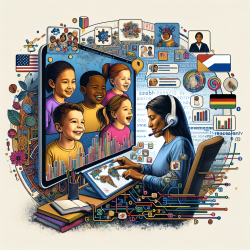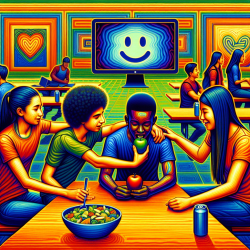Revolutionizing Occupational Therapy: Embrace the Nomad Science
Occupational therapy, a field rooted in the reformist movements of the 19th century, has undergone significant transformation. Initially, it thrived on the use of arts and crafts as a form of resistance against industrialism and biomedical reductionism. However, over time, it has become increasingly regulated by the biomedical model, leading to a profession that may have strayed from its reformist ideals. The research article, "From Domestication to Imperial Patronage: Deconstructing the Biomedicalisation of Occupational Therapy," by Pier-Luc Turcotte and Dave Holmes, offers a critical examination of this transformation and suggests a path forward that embraces creativity and resistance.
The Historical Context
Occupational therapy emerged as a profession during the First and Second World Wars, largely as a response to the need for rehabilitation of wounded soldiers. The use of arts and crafts was central to this effort, serving as a form of resistance against the prevailing biomedical model that focused on repairing bodies for productivity. This creative approach was initially embraced by nurses and other allied health professionals who sought greater autonomy and freedom in their practice.
The Impact of Biomedicalisation
As the profession grew, it became increasingly influenced by the biomedical model, which sought to impose its own standards and norms. This led to the marginalization of arts and crafts within occupational therapy, as the focus shifted towards evidence-based practices that prioritized measurable outcomes. The research by Turcotte and Holmes highlights how this shift represents a form of 'imperial' patronage that has stifled the creative and reformist potential of the profession.
Embracing Nomad Science
Drawing on the philosophical concepts of Deleuze and Guattari, the article advocates for a return to the roots of occupational therapy through the lens of 'nomad science.' This approach emphasizes the importance of creativity, resistance, and the rejection of rigid, predefined norms. By embracing this perspective, practitioners can challenge the dominance of the biomedical model and reintegrate arts and crafts into their practice as a form of political and social resistance.
Practical Implications for Practitioners
- Reintegrate Arts and Crafts: Consider incorporating creative activities into your therapeutic practice to foster a more holistic approach to patient care.
- Challenge Dominant Discourses: Question the prevailing evidence-based practices and explore alternative methods that prioritize patient-centered care.
- Foster Collaboration: Build coalitions with other health professionals and activists to resist the biomedical hegemony and promote innovative practices.
Conclusion
The future of occupational therapy lies in its ability to resist the constraints of the biomedical model and embrace its reformist roots. By reactivating the 'nomad war machines' and fostering creativity, practitioners can create a more inclusive and dynamic profession. This approach not only benefits patients but also enriches the field as a whole.
To read the original research paper, please follow this link: From domestication to imperial patronage: Deconstructing the biomedicalisation of occupational therapy.










